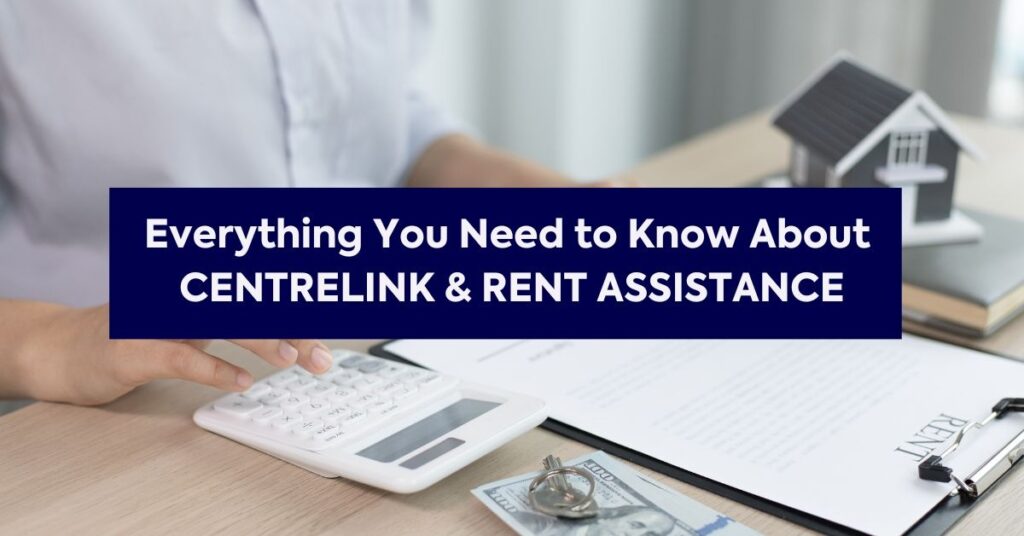Navigating NSW land tax can feel a bit tricky, especially when it comes to payments. If you’ve received your assessment and the full amount is a bit much to handle right now, don’t stress too much. NSW offers options to help you manage your land tax bill. This guide breaks down how a land tax payment plan works, including the nitty-gritty on interest, penalties, and how to get set up, so you can keep on top of your obligations without the extra worry.
What Is a Land Tax Payment Plan in NSW?
A land tax payment plan in NSW is essentially an arrangement with Revenue NSW that allows eligible taxpayers to spread their land tax liability over a set period, typically up to nine months. This can be a helpful tool for managing cash flow, especially if paying the full amount upfront presents a financial challenge. The primary benefit of an interest-free payment plan is avoiding the accumulation of interest and potential penalties on overdue amounts.
There are a few key advantages to consider:
- Budgeting Ease: Breaking down a large tax bill into smaller, regular instalments makes it easier to budget for and manage.
- Avoids Penalties: By adhering to the agreed-upon payment schedule, you sidestep the financial penalties associated with late payments.
- Cash Flow Management: It helps maintain healthier cash flow by not requiring a significant lump sum payment at once.
It’s important to note that not all payment plans are interest-free. If your land tax is already overdue, or if you don’t meet specific criteria, the payment plan may accrue interest. Understanding your specific situation and the terms of any plan is vital. For those looking to manage their tax obligations effectively, exploring options like effective tax planning can be beneficial.
Setting up a payment plan is a proactive step to meet your obligations. It’s always better to arrange a plan before the due date to avoid any additional charges.
Eligibility for Interest-Free Land Tax Payment Plans in NSW

Who Qualifies for Interest-Free Payment Plans?
Generally, if you’ve received a Notice of Assessment for land tax and are finding it difficult to pay the full amount by the due date, you can usually set up an interest-free payment plan. This is a helpful option provided by Revenue NSW to manage your tax obligations without incurring extra costs, as long as you stick to the agreed schedule. It’s designed for those who need a bit more time to settle their bill.
Key Eligibility Points:
- Received a Notice of Assessment: You must have an official land tax assessment from Revenue NSW to be eligible.
- Financial Difficulty: The plan is intended for taxpayers who cannot pay the full amount by the due date.
- No Existing Debt: Typically, you shouldn’t have any outstanding overdue land tax from previous periods when applying for a new plan.
- Timely Application: It’s best to apply for a payment plan before your due date passes to avoid penalties.
Setting Up Your Plan:
Applying is usually straightforward. You can manage your land tax account online through Land Tax Online. This platform allows you to view your assessment, check your balance, and set up a payment plan that suits your cash flow, often with options for fortnightly or monthly instalments over up to nine months.
It’s important to remember that these interest-free plans are a concession. Missing an instalment or failing to adhere to the agreed terms can lead to the plan being cancelled, and interest and penalties may then apply to the outstanding amount.
Payment Plan Duration & Frequency Options
When you receive your NSW land tax assessment, you’ve got a few options for how to handle the payment. If you’re not in a position to pay the full amount right away, setting up a payment plan is a good way to manage the cost. The good news is that for eligible taxpayers, these plans are interest-free.
Available Payment Plan Durations
Revenue NSW offers flexibility when it comes to the length of your payment plan. You can choose to spread your land tax payments over:
- 3 months: This is the shortest option, meaning larger instalment amounts but a quicker overall payment.
- 6 months: A mid-range option that balances instalment size with the payment period.
- 9 months: The longest available term, which results in the smallest instalment amounts, making it more manageable for some budgets.
Choosing the right duration depends on your cash flow and when you want the tax liability cleared.
How Instalments Are Calculated
Once you select a plan duration, your total land tax amount is divided equally into the number of instalments you’ve chosen. For example, if your land tax bill is $3,000 and you opt for a 6-month plan, each instalment would be $500. These payments are typically due on a set date each month. It’s important to make these payments on time to keep your plan active and avoid any penalties. If you’re looking to get a head start on your tax obligations, you can pay your land tax in full by the due date and receive a 0.5% discount, as outlined on the Revenue NSW website.
Setting up a payment plan is a proactive step to manage your tax commitments. It’s designed to help taxpayers avoid the stress and financial burden of a large, immediate payment.
How to Set Up or View Your Payment Plan via Land Tax Online

Setting up or checking on your NSW land tax payment plan is pretty straightforward, and it’s all done through the Land Tax Online portal. This is where you can manage your tax affairs efficiently. It’s important to get your payment plan sorted by the due date on your assessment notice to avoid any extra charges.
Accessing Land Tax Online
To get started, you’ll need to log in to your account. If you haven’t registered before, you’ll need to create one. The portal is designed to be user-friendly, allowing you to see your current land tax assessment and any payment arrangements you’ve made.
Setting Up a New Payment Plan
If you need to arrange a payment plan, you can usually do this directly through the portal. You’ll typically be presented with options for the duration of the plan, such as 3, 6, or 9 months. Just follow the on-screen prompts to select your preferred terms and confirm the arrangement. It’s a good idea to have your assessment notice handy when you log in.
Viewing Your Existing Payment Plan
Already have a plan in place? Land Tax Online lets you view the details of your current payment schedule. You can check how many instalments you have left, the amount of each payment, and the due dates. This helps you stay on top of your obligations and avoid missing a payment.
Key Steps to Manage Your Plan:
- Log in to your Land Tax Online account.
- Navigate to the ‘Payment Plans’ or ‘My Assessments’ section.
- Select the option to ‘Set Up a New Plan’ or ‘View Existing Plan’.
- Follow the instructions to confirm or adjust your payment schedule.
Remember, setting up a payment plan before the due date means you won’t be charged interest on your land tax liability. It’s a way to manage your cash flow without incurring additional costs. If you’re unsure about any part of the process, Revenue NSW provides resources to help you understand your obligations and how to manage your land tax.
If you encounter any issues or have specific questions about your situation, contacting Revenue NSW directly is the best course of action. They can provide personalised assistance to ensure your payment plan is correctly set up and maintained.
Paying in Full Early? How to Get a 0.5% Discount on Your Land Tax
It’s always a good idea to get your NSW land tax sorted promptly. If you’re in a position to pay your land tax liability in full by the due date shown on your assessment notice, you can snag a small discount. Revenue NSW offers a 0.5% reduction on the total amount payable. This little bonus is a nice way to acknowledge prompt payment and can add up if you have multiple properties or a higher tax bill.
How to Claim Your Early Payment Discount
Getting this discount is pretty straightforward. You don’t need to do anything special other than pay the full amount owing before the specified due date. Once the payment is processed, the discount is automatically applied. It’s a simple incentive to encourage the timely settlement of your land tax obligations. Remember to check your notice for the exact due date to make sure you don’t miss out.
When is the Discount Applied?
The 0.5% discount is applied at the time of payment. So, if your land tax bill is $10,000 and you pay it in full by the due date, you’ll only need to pay $9,950. It’s a direct reduction from the total amount assessed. This makes it a straightforward way to reduce your overall tax burden for the year, especially if you’re planning your year-end tax planning.
Important Considerations
- Due Date is Key: The discount is strictly for payments made by the due date. Any payment made after this date, even by a day, will not be eligible for the discount.
- Full Payment Required: The discount applies only when the entire land tax amount is paid. Partial payments, even if made before the due date, do not qualify.
- No Other Discounts: This 0.5% is the only discount available for early payment. It’s not cumulative with other potential concessions or remissions.
Paying early is a simple strategy to reduce your immediate cash outlay and benefit from a small saving. It’s a good option if you have the funds readily available and want to avoid any potential future complications with payment plans or late fees.
What Happens If You Miss Your Payment Plan Instalment?
Missing a payment on your NSW land tax payment plan can be a bit stressful, but it’s important to know what happens next. Revenue NSW generally allows a short grace period for late payments, but it’s best to act quickly.
If you miss an instalment, here’s what you can expect:
- Immediate Notification: You’ll likely receive a reminder or notification from Revenue NSW about the missed payment.
- Interest Charges: Depending on the terms of your specific plan and how quickly you rectify the situation, interest may start to accrue on the overdue amount. This is similar to how the Australian Taxation Office handles overdue amounts.
- Potential Plan Review: In some cases, missing a payment might lead to a review of your payment plan, or it could be cancelled altogether.
It’s always a good idea to contact Revenue NSW as soon as possible if you foresee difficulty in making a payment. They might be able to offer alternative arrangements or clarify the exact consequences for your situation. Staying in communication is key to managing your land tax obligations effectively.
Failing to address a missed payment can lead to more significant penalties and interest charges down the line. Proactive communication with the taxing authority is the most sensible approach.
Overdue Land Tax

Understanding Instalment Plans with Interest
While Revenue NSW offers interest-free payment plans for eligible taxpayers, it’s important to know that not all instalment arrangements are free of interest. If you’ve missed the deadline to set up an interest-free plan or if your circumstances don’t meet the criteria, any agreed-upon payment plan for overdue land tax will likely start accruing interest from the original due date.
This means the total amount you owe will increase over time. It’s always best to address your land tax liability promptly to minimise these additional costs.
When Interest Applies to Instalment Plans
Interest charges typically apply to instalment plans when:
- You have an existing overdue land tax debt, and you arrange a payment plan to clear it.
- You fail to set up an interest-free payment plan by the specified deadline.
- Your payment plan is for a period longer than the standard interest-free terms.
How Interest is Calculated
Revenue NSW calculates interest on overdue land tax daily. The interest rate is set by legislation and can change. It’s applied to the total outstanding amount, including any penalties that may have already been added. This daily accrual can add up significantly if the debt remains unpaid for an extended period. For instance, if you have a payment plan that includes interest, each instalment you make will first go towards the accrued interest and penalties before reducing the principal land tax amount. It’s a bit like how buy now, pay later services work; if you miss a payment, interest can start to accumulate, which is why managing your land tax obligations is so important.
Consequences of Defaulting on an Interest-Accruing Plan
If you enter into a payment plan that accrues interest and then fail to meet those installment payments, further penalties could be applied. Revenue NSW has the authority to take recovery action, which might include legal proceedings or the appointment of a debt collector. It’s always advisable to communicate with Revenue NSW if you anticipate difficulty in meeting your payment plan obligations.
How NSW Calculates Interest on Overdue Land Tax
When you miss a land tax payment deadline or don’t pay your land tax on time, Revenue NSW starts charging interest on the overdue amount. This interest is calculated daily from the date the tax was due until the date it’s fully paid. It’s a way to compensate the government for the delay in receiving the funds.
The interest rate applied is a prescribed rate set by the Treasurer, and it can change. It’s important to know that this interest is added on top of the original tax amount.
Here’s a breakdown of how it generally works:
- Daily Calculation: Interest accrues every single day the tax remains unpaid past its due date.
- Compounding Effect: While not always explicitly stated as compounding in the same way as a bank loan, the interest charged on overdue amounts can effectively increase the total debt over time, as it’s calculated on the outstanding balance, which includes previously accrued interest.
- No Threshold for Interest: Interest typically starts from the first day the tax is overdue, regardless of how small the amount might be.
It’s always best to pay your land tax by the due date or arrange a payment plan beforehand to avoid these additional costs. If you’re unsure about your specific situation or the current rate, checking the Revenue NSW website is a good first step.
Current Interest Rates for NSW Land Tax Defaults
When you miss a land tax payment deadline or fail to arrange a payment plan, Revenue NSW starts charging interest on the overdue amount. This interest is calculated daily from the date the tax was due until it’s fully paid. It’s a way to compensate the government for the delayed payment. The interest rate applied is not fixed and can change, so it’s important to stay updated.
Revenue NSW uses a specific formula to work out the interest. It’s generally based on a benchmark rate plus a margin. This means the rate can fluctuate over time, reflecting broader economic conditions.
Here’s a general idea of how it works:
- Daily Calculation: Interest accrues every single day the tax remains unpaid.
- Compounding Effect: While not always explicitly stated as compounding in the same way as a bank loan, the interest added to the principal can effectively increase the base amount on which future interest is calculated.
- No Cap on Interest: Unlike some other penalties, there isn’t usually a maximum limit on the total interest that can be charged.
It’s always best to check the official Revenue NSW website for the most current interest rates and calculation methods. Staying informed helps you manage your tax obligations effectively and avoid unexpected charges.
Penalty Tax for Land Tax Defaults

If you miss a land tax payment or fail to pay by the due date, Revenue NSW can apply a penalty tax. This is separate from the interest that accrues on overdue amounts. It’s basically an extra charge to encourage timely payments and compensate the state for late collection.
When Penalty Tax is Applied
Penalty tax is generally applied when:
- You don’t pay your land tax by the due date shown on your assessment notice.
- You don’t lodge your land tax return by the due date, even if you don’t owe any tax.
- You don’t pay any other amount you owe under the Land Tax Management Act 1956.
The imposition of penalty tax is a serious matter, and it’s always best to communicate with Revenue NSW if you anticipate difficulties meeting your obligations.
How Penalty Tax is Calculated
The amount of penalty tax is usually a percentage of the unpaid tax. The specific percentage can change, so it’s important to check the current rates. For instance, if you fail to lodge a return, a penalty might be calculated based on the tax you eventually owe. If you’re late with a payment, the penalty is typically a fixed percentage of the overdue amount.
It’s worth noting that penalty tax can be applied in addition to interest charges. This means that the total cost of a land tax default can increase quite rapidly. Understanding these charges is key to managing your tax liabilities effectively. For detailed information on how these charges are applied, you can refer to the guidelines on interest and penalties.
Penalty Reduction Possibilities
While penalties are designed to be deterrents, there are limited circumstances where a reduction might be considered. This often involves situations where a genuine mistake was made, or if you voluntarily disclose an error before it’s discovered by Revenue NSW. However, these are assessed on a case-by-case basis and are not guaranteed. It’s always better to be proactive and meet your obligations to avoid these additional costs altogether.
Reducing Interest
Sometimes, things happen that make it really tough to meet your land tax obligations on time. If you’re facing financial hardship or other special circumstances, you might be able to ask for a reduction in the interest charged on overdue land tax. This process is called remission of interest.
Applying for Interest Remission
To apply for remission, you’ll generally need to put your request in writing to Revenue NSW. It’s important to be clear about why you can’t pay and what has made things difficult. You’ll need to provide evidence to support your claim. This could include things like medical certificates, bank statements showing financial distress, or other official documents that explain your situation.
Grounds for Remission
Revenue NSW considers remission requests on a case-by-case basis. Common reasons that might be accepted include:
- Serious illness or injury that prevents you from working or managing your finances.
- Unexpected and significant financial hardship, such as job loss or business failure.
- Natural disasters that directly impact your ability to pay.
- Administrative errors made by Revenue NSW that caused a delay or misunderstanding.
What to Include in Your Application
When you write to Revenue NSW, make sure you include:
- Your land tax assessment number.
- A clear explanation of the circumstances that led to the overdue tax and your inability to pay.
- Copies of supporting documents (e.g., medical certificates, bank statements, proof of hardship).
- The period for which you are requesting remission.
- Your contact details.
The sooner you apply for remission after becoming aware of the overdue tax, the better your chances of a favourable outcome. It’s always best to communicate with Revenue NSW as soon as possible if you’re struggling to meet your obligations. You can find more information about the Taxation Administration Act 1996 on their website.
Important Considerations
While remission of interest is possible, it’s not guaranteed. Revenue NSW will assess each application based on the specific details and evidence provided. They look at whether the circumstances were genuinely beyond your control and if you acted promptly to address the issue. It’s also worth noting that remission usually applies to the interest charged, not the original tax amount itself.
Penalty Reduction Through Voluntary Disclosure
Sometimes, things don’t go quite as planned with tax payments. If you’ve made a mistake or forgotten to declare something that affects your land tax, there’s a way to potentially lessen the sting of penalties. This involves making a voluntary disclosure to Revenue NSW. It’s basically telling them about the issue before they find it themselves.
What is Voluntary Disclosure?
Voluntary disclosure means proactively informing Revenue NSW about an underpayment or omission related to your land tax liability. This could be due to an error in your return, a change in circumstances you didn’t report, or even a misunderstanding of the rules. The key benefit is that it can lead to a reduction in penalty tax.
How Voluntary Disclosure Works
When you make a voluntary disclosure, Revenue NSW will review the information you provide. If they accept it as a genuine voluntary disclosure, they may reduce the penalty tax that would otherwise be applied. The amount of reduction can depend on several factors, including:
- When the disclosure is made about the original due date.
- The nature and extent of the omission or error.
- Your cooperation with Revenue NSW during their review.
Steps for Making a Voluntary Disclosure
- Identify the Issue: Pinpoint the specific error or omission in your land tax return or payment.
- Gather Information: Collect all relevant documents and details that support your disclosure.
- Contact Revenue NSW: Reach out to them directly to explain your situation and how you wish to make a voluntary disclosure. They will provide guidance on the specific process.
- Submit Disclosure: Follow their instructions for submitting the disclosure, which may involve completing specific forms or providing a detailed written explanation.
It’s always a good idea to get professional advice when making a voluntary disclosure to ensure you cover all bases. Understanding your tax obligations is important, and seeking help with asset finance can also be beneficial for businesses managing their finances.
Quick Reference Guide
Choosing the right way to handle your NSW land tax bill can save you money and hassle. It really comes down to your financial situation and when you can pay. If you can manage it, paying your land tax in full by the due date is the most cost-effective option. This way, you snag a 0.5% discount on the total amount owed. It’s a nice little bonus for being organised.
If paying the full amount upfront isn’t feasible, don’t stress. NSW offers interest-free payment plans for up to nine months. These plans are designed to make things more manageable, breaking down the cost into smaller, regular payments. You can usually choose between 3, 6, or 9-month terms, depending on what suits your budget best. Setting these up is generally straightforward through the Land Tax Online portal.
What happens if you miss a payment on your plan? Well, it’s not ideal. Missing an instalment can mean your payment plan is cancelled, and the remaining balance becomes due immediately. Worse still, interest and penalties might start to apply to the overdue amount. It’s always best to contact Revenue NSW as soon as possible if you foresee any difficulty in making a payment.
For those who find themselves with overdue land tax, things change. Interest starts accruing daily on the outstanding amount from the original due date. The rate is set by the State Revenue Office and can add up quickly. On top of interest, there’s also the possibility of penalty tax being applied, especially if the default is significant or prolonged. It’s a good idea to check the current interest rates on the Revenue NSW website to understand the potential costs.
Here’s a quick rundown to help you decide:
- Pay in Full: Best for savings (0.5% discount), but requires immediate funds.
- Interest-Free Payment Plan: Ideal for managing cash flow, spreads the cost over time without extra charges if you stick to the schedule.
- Overdue Tax: Most expensive option due to daily interest and potential penalties. Act fast to minimise costs.
Making a plan, whether it’s paying early for a discount or setting up a payment schedule, is always better than ignoring your land tax obligations. Early action can prevent a lot of stress and extra expense down the track.
Choosing how to pay your NSW land tax doesn’t have to be tricky. Our guide, “13. Quick Reference Guide: Choose the Right NSW Land Tax Payment Strategy,” breaks down the best options for you. Want to make sure you’re paying your land tax the smart way? Visit our website for all the details and tips.
Frequently Asked Questions
What exactly is a Land Tax Payment Plan in NSW?
In New South Wales, a Land Tax Payment Plan lets you spread out the cost of your land tax over a set period, usually up to nine months. This can make it easier to manage your finances, especially if paying the full amount at once is difficult. It’s a way to avoid late fees and penalties by making regular, smaller payments.
Who is eligible for an interest-free payment plan for NSW Land Tax?
Generally, you can set up an interest-free payment plan if you’re having trouble paying your land tax by the due date. It’s best to arrange this before the due date to avoid any extra charges. The key is to be proactive and contact Revenue NSW or set it up online if you know you can’t pay the full amount on time.
What are the typical timeframes for NSW Land Tax payment plans?
You can usually choose to pay your land tax in instalments over three, six, or nine months. The specific options available might depend on your situation and when you set up the plan. These plans are designed to be interest-free, provided you stick to the agreed payment schedule.
How do I set up or view my payment plan online?
You can usually set up or check your payment plan through the ‘Land Tax Online’ service on the Revenue NSW website. You’ll likely need to log in with your account details. It’s a straightforward process designed to help you manage your tax payments easily.
Can I get a discount if I pay my NSW Land Tax early?
Yes, if you manage to pay your entire land tax bill before the due date, you can often get a small discount, usually around 0.5%. It’s a good incentive to pay early if you have the funds available. Check your assessment notice for details on how to claim this discount.
What happens if I miss a payment on my plan?
If you miss an instalment on your payment plan, it’s important to act quickly. Contact Revenue NSW straight away to explain your situation. Missing a payment might mean the plan is cancelled, and you could be charged interest and penalties on the outstanding amount. Early communication is key.
What happens if I don’t pay my land tax on time?
If you don’t pay your land tax by the due date and haven’t arranged a payment plan, you will likely have to pay interest on the overdue amount. The interest usually starts accumulating from the day after the due date until you pay it all off. Penalties might also apply.
How is interest calculated on overdue NSW Land Tax?
Revenue NSW calculates interest on overdue land tax using a specific rate set by the government. This rate can change, so it’s always a good idea to check the current rate on their website. The interest is usually calculated daily on the amount you owe.












